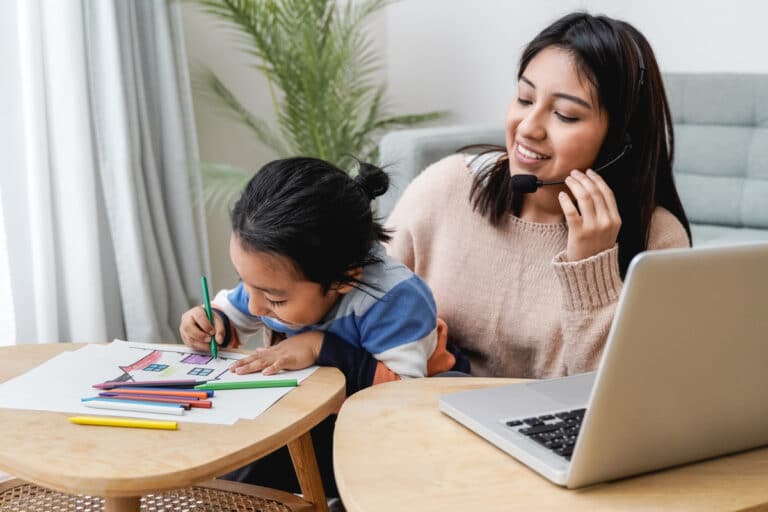Long-distance parenting isn’t always ideal. It can mean long-term planning and scheduling to ensure you get to spend time with your children while remaining in separate locations. Your child may frequently travel alone if they live in another state or country. In these cases, there are certain things you should consider beforehand.
This article will look at navigating travel when long-distance parenting and answer questions like ‘When do I need a child travel consent form?’ to clarify the process for you.
Learn more about travel and long-distance parenting below.
In This Article
What is Long Distance Parenting?
Long-distance parenting refers to situations where two parents live a substantial distance from one another. The child may spend most of their time with one parent, only visiting the other for short periods, or they may split their time evenly between the two.
Parenting from a distance requires lots of pre-scheduling and will likely include video chatting and phone calls to keep an emotional connection with your child, even if you can’t physically be with them.
Visits for long-distance parents can include both the nonresidential parent coming to visit the child or the child visiting the nonresidential parent where they live.
What Travel Considerations Do I Need to Make When Long-Distance Parenting?
For long-distance parents, planning a visit can be overwhelming, so we’ve broken down a few aspects to consider when having a nonresidential child come to stay.
Flights, Travelling Alone, and Travel Consent
Firstly, you need to consider how your child will get to you. Some residential parents may drive their child over to you, but this is not an option for others. You may consider a number of modes of transport and weigh the pros and cons of costs, duration, and safety.
If you’re booking flights, consider which service provider you are using. Do they have a policy in place for unaccompanied minors? Can they help with travel logistics?
In the US, any flyer between the ages of 5 and 14 is considered a minor, and you may have to pay up to $150 for an unaccompanied minor service. Some airlines do not allow unaccompanied minors, so it is best to do your research and find the most suitable one for your situation.
Additionally, travel consent may be required, depending on your situation, for a child traveling alone or with a parent who does not have sole custody. Every situation is different, so you should research whether this is a requirement for you.
Childcare During the Visit
If you are a nonresidential parent having your children stay, you may still need to go to work during the day. During this time, hiring a sitter to care for your children while you are out may be necessary.
Some custodial agreements include directions on who is allowed to look after the children. Ensure you check your own agreement and converse with your co-parent to ensure that the person you’re leaving your children with is suitable for both of you.
In joint custody cases, both parents have a right to make decisions about childcare, and as such, the co-parent needs to be kept informed.
Requirements for Stay
Lastly, when you have a child visiting, you will need to consider things like food, toiletries, and other requirements they may have. You can prepare by speaking with your co-parent to ensure you have food they like stocked and anything else they are likely to need.
Other Tips When Long Distance Parenting
While travel is a large part of long-distance parenting, there will be lots of time when you are separated from your child by physical space. In these times, you can do a few things to ensure your connection with your child remains strong and they still feel your presence, even when you’re far away.
- Schedule calls and video chats: Technology is an incredibly useful tool for long-distance parents, so embrace it! Set up weekly video chats so you can speak with your child face to face, and ensure that you keep in contact via text messages, phone calls, and more.
- Agree on regular visitation: Don’t wing your visitation schedule; plan when and where you will see your children. The further ahead that you plan, the better.
- Be there for them: Remember that you can still be there for your child, even if you’re at the other end of the phone.
- Get involved: Where possible, be involved. Skype in for birthday parties (or fly in and surprise them if you can!), chat with them about report cards, and support your co-parent when it is necessary.
Final Thoughts
Long-distance parenting can be tricky to navigate, but it will become more natural over time if you get a plan in place and keep communication lines open. Remember that there are many things to consider when a child is traveling alone. Ensure you have covered all bases before they get on a flight unaccompanied!











